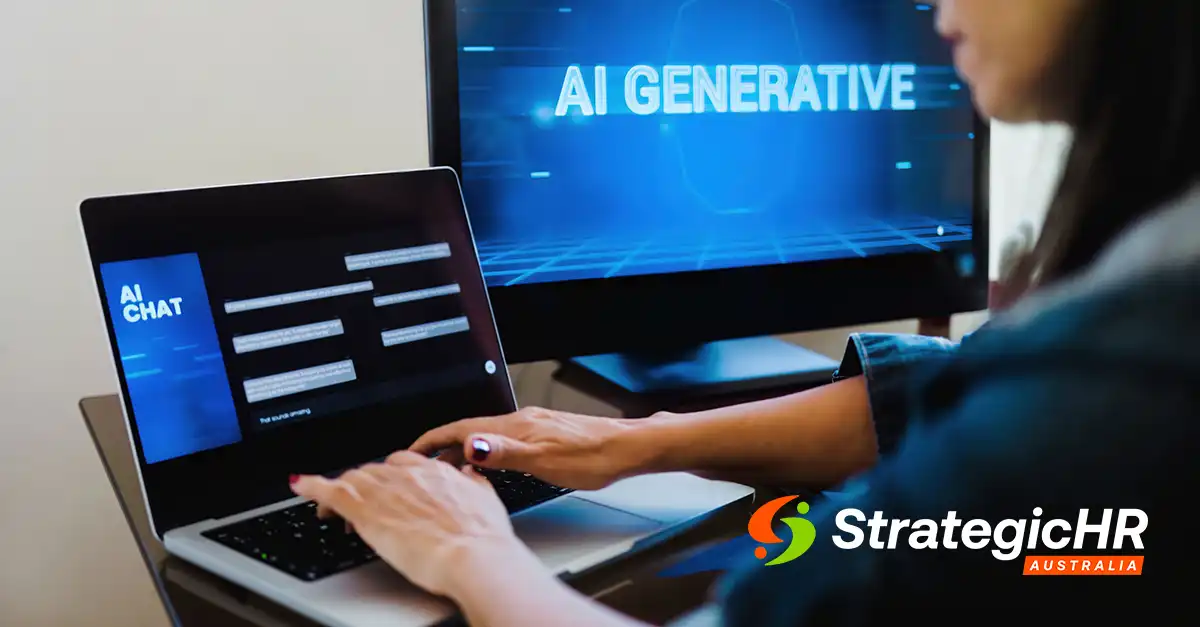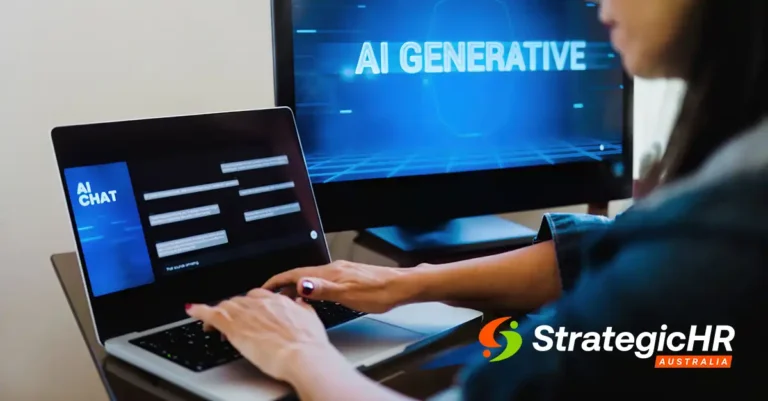The recruitment landscape is changing rapidly, and with the rise of AI-generated resumes, business owners and managers must be more vigilant than ever. While artificial intelligence can help job seekers craft polished and professional applications, it also introduces new risks for employers-exaggerated credentials, embellished skills, and even entirely fabricated work experience.
As AI tools become more sophisticated, traditional hiring methods may no longer be enough to ensure you’re selecting the right candidate for the job. Employers must adapt their recruitment strategies to verify applicant credentials and protect their businesses from hiring risks.
The Growing Concern: How AI is Shaping Job Applications
AI-powered resume-building tools enable job seekers to:
- Instantly generate well-structured resumes with optimised keywords.
- Enhance their skills and experience descriptions to match job postings.
- Improve grammar and formatting to increase their chances of passing applicant tracking systems (ATS).
While these tools are useful for job seekers, they can also create misleading applications-making it harder for employers to distinguish between genuine candidates and those who have overstated their qualifications.
Why Employers Need Stronger Verification Processes
AI-generated resumes increase the risk of hiring underqualified candidates, which can lead to performance issues, high turnover rates, and legal concerns.
Here are some key risks:
1. Exaggerated or Fabricated Credentials
AI tools can embellish or entirely invent qualifications, such as degrees, certifications, or job titles, making it difficult to trust a candidate’s resume at face value. This increases the chance of hiring someone who lacks the claimed expertise or education.
2. Overstated Skills
Candidates can use AI to enhance descriptions of their skills, presenting themselves as proficient in areas where they have little to no real experience. This can lead to hiring individuals unable to perform critical job functions.
3. Performance Gaps
When resumes don’t reflect a candidate’s actual abilities, employers may onboard underqualified hires, resulting in poor job performance, missed deadlines, or subpar work quality that impacts team productivity and business outcomes.
4. High Turnover Rates
Hiring someone based on an AI-polished resume who can’t meet expectations often leads to quick exits—either through termination or voluntary resignation. This increases recruitment costs and disrupts workflow.
5. Legal and Compliance Risks
If a hire with falsified credentials is placed in a role with regulatory requirements (e.g., healthcare, finance), the business could face legal penalties, audits, or reputational damage due to noncompliance.
6. Wasted Time and Resources
Sorting through misleading applications and onboarding unfit candidates consumes valuable time, money, and effort. Employers may need to restart the hiring process, delaying projects or operations.
7. Difficulty Spotting Genuine Talent
With AI optimising resumes to pass applicant tracking systems (ATS), even unqualified candidates can slip through initial screenings, crowding out authentic applicants and complicating the talent identification process.
8. Erosion of Trust in Recruitment
Frequent encounters with deceptive resumes can make employers sceptical of all applicants, slowing down hiring decisions and potentially causing them to miss out on qualified candidates.
Worried about hiring someone who’s not who they claim to be?
Don’t leave it to chance. Strategic HR Australia offers expert support with background checks, structured interviews, and candidate verification.
How to mitigate these risks effectively
To mitigate these risks, businesses should prioritise verification and screening methods that go beyond the resume. Combine multiple methods to ensure thorough validation and apply the same process to all applicants to ensure fairness and efficiency. Above all, always ensure processes align with local employment laws and regulations.
1. Conduct Comprehensive Background and Reference Checks
Do not take a resume at face value—always verify an applicant’s employment history, education, and qualifications. Speaking directly with previous employers provides insight into a candidate’s true experience and work ethic.
2. Implement Skills-Based Assessments
A resume may claim a candidate has expert-level skills, but can they demonstrate them in practice? Incorporating written tests, technical challenges, or practical tasks into your hiring process can help confirm a candidate’s actual abilities.
3. Use Structured Interviews to Assess Soft Skills
AI-generated resumes can make soft skills look impressive, but a structured interview process with scenario-based questions will reveal whether a candidate truly possesses those qualities. Ask for real-world examples of teamwork, leadership, and problem-solving.
4. Incorporate Technical or Practical Demonstrations
Ask candidates to perform job-specific tasks in real-time (e.g., a live software demo, equipment operation, or a mock sales pitch). Observing their proficiency and problem-solving approach can help to verify hands-on expertise claimed on their resume.
5. Stay Ahead with AI Detection Tools
New technologies can help detect AI-generated content in resumes and cover letters. While not foolproof, these tools can help flag potential exaggerations, prompting deeper review before making a hiring decision.
6. Social Media and Online Profile Review
Cross-reference the candidate’s LinkedIn, GitHub, or other professional profiles with their resume. Look for matching dates, roles, and accomplishments, and note any red flags like sparse activity or sudden updates. Inconsistencies between platforms can signal embellishment or fraud.
7. Offer Probationary Periods or Trial Tasks
Offer a short-term contract or paid trial project before permanent employment to evaluate performance on the job. Defining clear deliverables and assessing outcomes after a set period, will provide a real-world test of skills and fit, and help identify discrepancies post-hire.
How Strategic HR Australia Can Support Your Hiring Process
AI is transforming recruitment, but with the right approach, businesses can protect themselves from hiring risks while still attracting top talent. At Strategic HR Australia, we provide tailored HR solutions to help employers navigate the challenges of modern recruitment.
Our services include:
- Advanced background checks and reference verification to confirm candidate credibility.
- Structured interviews to ensure hiring decisions are based on ability, not just a polished resume.
- HR compliance guidance to keep your business protected from recruitment-related legal risks.
- Ongoing support and best-practice strategies to refine your hiring processes in a rapidly changing job market.
In an era where AI-generated applications are becoming the norm, employers must be more proactive than ever in their hiring approach.
If you need support in strengthening your recruitment process, contact Strategic HR Australia today to ensure your next hire is the right one.







